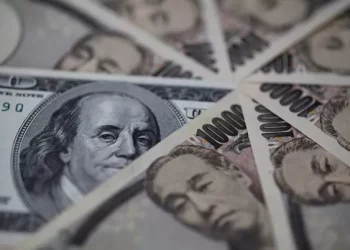In the ever-evolving landscape of international finance, keeping abreast of currency exchange rates is essential for businesses and investors alike. One of the key pairs attracting attention is the yuan to MMK (Myanmar Kyat). As of today, the exchange rate between the Chinese yuan (RMB) and the Myanmar Kyat is a crucial indicator for those engaged in cross-border transactions, trade, and investment between China and Myanmar.
Current Exchange Rate Analysis
Understanding the Numbers
At the heart of the matter is the numerical representation of the exchange rate. As of today, the RMB to MMK stands at 295.47. This means that one Chinese yuan is equivalent to 295.47 Myanmar Kyat. Analyzing this figure is vital for businesses engaged in import and export activities between the two nations, as it directly impacts the cost of goods and services, influencing profit margins and competitiveness in the market.
Factors Influencing the Exchange Rate
The yuan to MMK exchange rate is subject to a myriad of factors, both internal and external. Economic indicators, political stability, and market sentiment play pivotal roles in determining the valuation of these currencies. The economic policies of both China and Myanmar, as well as global economic trends, contribute to the day-to-day fluctuations witnessed in the exchange rate.
Recent Trends in the Yuan to MMK Exchange Rate
Volatility and Stability
Recent months have seen a degree of volatility in the yuan to MMK exchange rate. Fluctuations, although within a manageable range, have been influenced by geopolitical events, trade agreements, and economic performance indicators. Despite this volatility, the exchange rate has exhibited a level of stability, providing a certain degree of predictability for businesses engaged in transactions involving these currencies.
Trade Balance Impact
The trade balance between China and Myanmar is a critical factor influencing the exchange rate. As China remains one of Myanmar’s major trading partners, any shifts in the trade balance can exert pressure on the valuation of the yuan against the MMK. Trade surplus or deficit scenarios can impact market perceptions, thereby influencing investor confidence and currency values.
Government Policies and Their Impact on the Exchange Rate
Chinese Economic Policies
The People’s Bank of China, China’s central bank, plays a significant role in shaping the country’s economic policies, including those affecting the exchange rate. Recent adjustments in interest rates, monetary policies, and interventions by the central bank have had repercussions on the yuan to MMK exchange rate. Investors closely monitor these policy changes for insights into future currency movements.
See Also: Current RMB Exchange Rate: Yuan to RWF
Myanmar Economic Landscape
Similarly, policies implemented by the Central Bank of Myanmar and the Myanmar government contribute to the dynamics of the exchange rate. Economic reforms, fiscal policies, and measures taken to stabilize the financial sector all have a bearing on the valuation of the Myanmar Kyat against the Chinese yuan. Investors and businesses operating in Myanmar closely follow these developments to make informed decisions.
Global Economic Indicators and Exchange Rate Movement
Impact of Global Events
Beyond the bilateral relationship between China and Myanmar, global economic indicators play a crucial role in determining the yuan to MMK exchange rate. Factors such as inflation rates, global economic growth, and geopolitical tensions can create ripples in the currency markets. As the world becomes increasingly interconnected, seemingly unrelated events can have cascading effects on exchange rates.
Influence of International Trade Agreements
Trade agreements involving China and Myanmar, as well as broader international agreements, can impact the exchange rate. For example, the Belt and Road Initiative, a massive infrastructure and economic development project led by China, can influence the yuan to MMK exchange rate through its impact on trade volumes and economic cooperation between the two nations.
Market Sentiment and Investor Confidence
Role of Speculation
Market sentiment and speculative activities also contribute to the day-to-day fluctuations in the yuan to MMK exchange rate. Traders and investors, reacting to news and developments, can drive short-term movements in the currency markets. Understanding and interpreting market sentiment becomes crucial for businesses engaged in cross-border transactions, allowing them to make timely decisions.
Investor Confidence in Emerging Markets
The perception of China and Myanmar as emerging markets adds another layer of complexity to the exchange rate dynamics. Investor confidence in the economic prospects of both nations can influence capital flows, affecting the valuation of their respective currencies. Positive economic indicators and political stability can enhance investor confidence, potentially leading to a strengthening of the yuan against the MMK.
Strategies for Businesses in the Current Environment
Risk Management
Given the inherent volatility in currency markets, businesses engaging in cross-border transactions should adopt robust risk management strategies. This includes utilizing financial instruments like forward contracts to hedge against unfavorable movements in the yuan to MMK exchange rate. Timely and informed decision-making is paramount to navigate the challenges posed by currency fluctuations.
Monitoring Economic Indicators
A proactive approach involves closely monitoring key economic indicators in both China and Myanmar. By staying abreast of changes in interest rates, inflation, and trade balances, businesses can anticipate potential shifts in the exchange rate. This information forms the basis for strategic decision-making, ensuring that businesses are well-prepared for currency movements.
Looking Ahead: Future Prospects for the Yuan to MMK Exchange Rate
Potential Catalysts for Change
As we look to the future, several potential catalysts could impact the yuan to MMK exchange rate. Continued economic reforms in both China and Myanmar, the resolution of geopolitical tensions, and the implementation of strategic infrastructure projects could contribute to a more stable and predictable exchange rate environment. Businesses must stay vigilant and adapt their strategies accordingly.
Adapting to Change
In conclusion, the yuan to MMK exchange rate remains a critical metric for businesses and investors navigating the dynamic landscape of international finance. By understanding the factors influencing this exchange rate and adopting proactive strategies, businesses can mitigate risks and capitalize on opportunities in the evolving economic relationship between China and Myanmar. As we move forward, staying informed and agile will be key to success in the ever-changing world of currency markets.
Related Topics:
Current RMB Exchange Rate: Yuan to Tugrik
Current RMB Exchange Rate: Yuan to Turkish Lira
Current RMB Exchange Rate: Yuan to USD Today
























